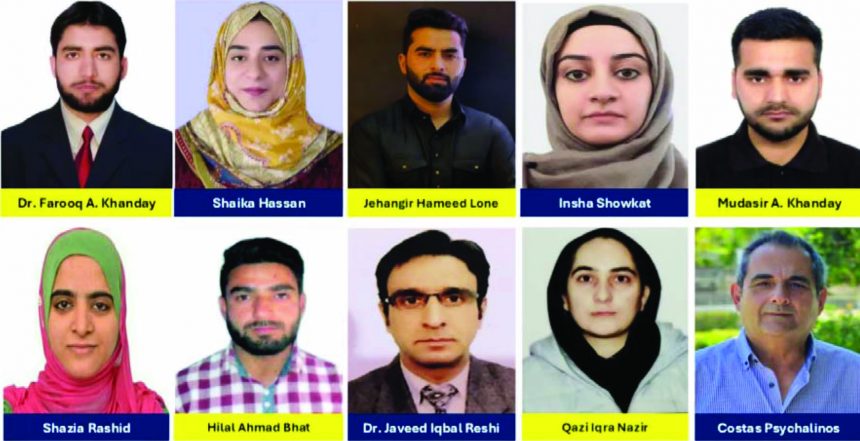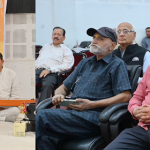Srinagar, Mar 29: The University of Kashmir (KU) has achieved yet another significant milestone in scientific innovation as its faculty member, Dr. Farooq Ahmad Khanday and his team of researchers from the Department of Electronics and Instrumentation Technology (DEIT) KU, in collaboration with the University of Patras, Greece, has secured a patent for their Portable Microcontroller-Based Im-pedance Meter for Biological Tissue Analysis.
The team developed a portable impedance meter for accurate and affordable biological tissue analy-sis to address the limitations of bulky, inaccessible and expensive impedance analysers.
The newly patented portable impedance meter is a standalone, microcontroller-based device de-signed for real-time biological tissue analysis. It provides high accuracy (97 percent), automatic signal adjustment, and real-time data collection with a built-in display, making it an efficient and cost-effective alternative to conventional systems. This device is set to have far-reaching applications in medical diagnostics, agriculture, the food industry and wearable technology.
The innovation led by Dr. Khanday includes research scholars from DEIT KU- Shaika Hassan, Insha Showkat, Jehangir Hameed Lone, Mudasir Ahmad Khanday, Shazia Rashid, Hilal Ahmad Bhat, Javeed Iqbal Reshi, and Qazi Iqra Nazir and Prof. Costas Psychalinos from the University of Patras, Greece.
Vice-Chancellor KU, Prof. Nilofer Khan, congratulated the team and said: “Securing this patent re-flects the dedication and expertise of our researchers. Innovations like these strengthen our universi-ty’s role in advancing scientific solutions for real-world challenges.”
Dean Research KU, Prof. Mohammad Sultan Bhat, also congratulated the team and said that secur-ing this patent reflects the university’s growing emphasis on innovation-driven research. Head, DEIT KU, Prof. M. Tariq Banday, lauded the team for their achievement, stating that this achievement shows the department’s commitment to promoting interdisciplinary research and technological ad-vancements. This innovation strengthens the university’s reputation as a hub for cutting-edge re-search and contributes to the advancement of affordable and accessible technology.







